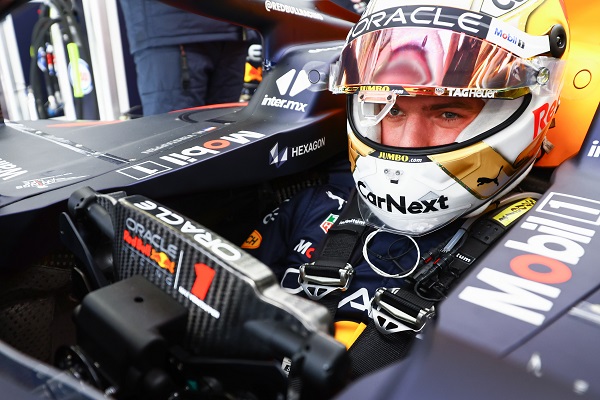How much money would you make if you owned Formula One?
18th March 2022 12:27
by Lee Wild from interactive investor
How much money would you make if you owned Formula One? Find out what F1’s owner Liberty Media made in its first five years of ownership. As Mercedes’ Lewis Hamilton and Red Bull’s Max Verstappen start the 2022 season, watch the mind-boggling numbers involved in F1.

A finale like Abu Dhabi in 2021 has made this Formula One season the most eagerly awaited in years, possibly decades. “Cheated” out of a record-breaking eighth world championship with just a few corners to go in December’s controversial race at the Yas Marina Circuit, Sir Lewis Hamilton will want to wrest the crown from Red Bull’s Max Verstappen. Millions will tune in this weekend to see if he can.
As the F1 circus kicks off 2022 in Bahrain, it’s all eyes on Hamilton and the Dutchman, but there are battles on the grid everywhere you look. Ferrari look strong, McLaren too, and George Russell is expected to give his Mercedes team mate an even closer run than Valteri Bottas did.
A series of rule changes for this season heralds a revolution in design and performance. The cars look different – 18-inch low-profile tyres and stacks of modifications are pushing the envelope and are likely to attract a massive TV audience. Many of them will be a new generation of younger fans more comfortable with social media and more prolific on it too.
Glitz, glamour and lots of money
F1 is a big-money sport, and millions of dollars will be spent on race tickets, team merchandise and corporate hospitality over the course of this 22-race season.
Formula One’s owner Liberty Media is a clear beneficiary. Five years after it bought the business from private equity firm CVC Partners for over $4 billion, the American company had a record year in 2021, making big profits.
But it’s not been a smooth ride for F1’s latest owner. There was work to do rebuilding F1 after CVC did what private equity does, exploiting the multi-billion-dollar industry for its own gain. Putting profit over investment had consequences, which Liberty has started to put right. A pandemic-affected 2020 season also put a big hole in Liberty’s pocket.
Obviously, that costs money, lots of it. And running F1 is hugely expensive. Race promotion fees, media rights and sponsorship typically generate around $2 billion of revenue every year, but teams need paying – about $1 billion is distributed among the 10 teams - and staff headcount has grown under Liberty.
- How to invest £100,000
- Shares, funds and trusts for your ISA in 2022
- Six value share tips for 2022 – and beyond
- Want to buy and sell international shares? It’s easy to do. Here’s how
There’s a line in the annual results that sticks out like a sore thumb too – something the accountants call depreciation and amortization. It’s a far cry from the showbiz world of F1, but it’s the most important item in the book.
Amortisation refers to the way companies allocate the cost of an intangible asset over time. For Liberty, which trades on the Nasdaq tech market in the US as Liberty Formula One Group C (NASDAQ:FWONK), it represents their rights to commercialise the F1 championship, which is amortized over 35 years.
We’ve analysed where the money’s coming from and what it has cost Liberty to put on the F1 show over the past five years. Whether you’re an F1 fan or not, the results are fascinating.
These articles are provided for information purposes only. Occasionally, an opinion about whether to buy or sell a specific investment may be provided by third parties. The content is not intended to be a personal recommendation to buy or sell any financial instrument or product, or to adopt any investment strategy as it is not provided based on an assessment of your investing knowledge and experience, your financial situation or your investment objectives. The value of your investments, and the income derived from them, may go down as well as up. You may not get back all the money that you invest. The investments referred to in this article may not be suitable for all investors, and if in doubt, an investor should seek advice from a qualified investment adviser.
Full performance can be found on the company or index summary page on the interactive investor website. Simply click on the company's or index name highlighted in the article.